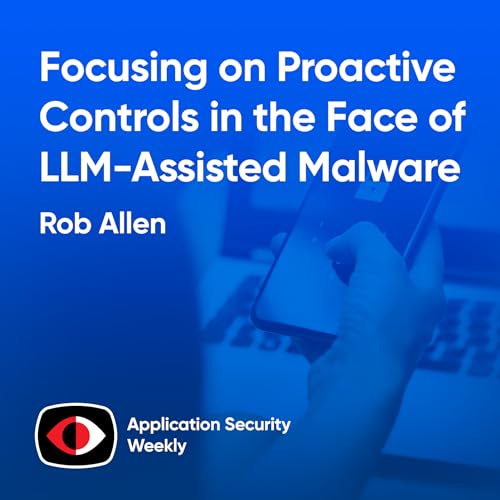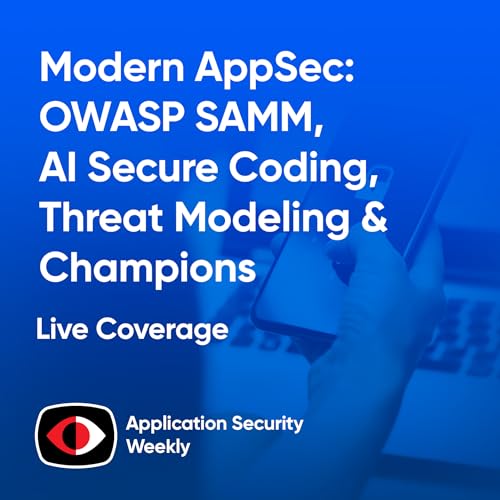Using OWASP SAMM to assess and improve compliance with the Cyber Resilience Act (CRA) is an excellent strategy, as SAMM provides a framework for secure development practices such as secure by design principles and handling vulns.
Segment Resources:
- https://owaspsamm.org/
- https://cybersecuritycoalition.be/resource/a-strategic-approach-to-product-security-with-owasp-samm/
As genAI becomes a more popular tool in software engineering, the definition of "secure coding" is changing. This session explores how artificial intelligence is reshaping the way developers learn, apply, and scale secure coding practices — and how new risks emerge when machines start generating the code themselves. We'll dive into the dual challenge of securing both human-written and AI-assisted code, discuss how enterprises can validate AI outputs against existing security standards, and highlight practical steps teams can take to build resilience into the entire development pipeline. Join us as we look ahead to the convergence of secure software engineering and AI security — where trust, transparency, and tooling will define the future of code safety.
Segment Resources:
Understand the history of threat modeling with Adam Shostack. Learn how threat modeling has evolved with the Four Question Framework and can work in your organizations in the wake of the AI revolution.
Whether you're launching a formal Security Champions program or still figuring out where to start, there's one truth every security leader needs to hear: You already have allies in your org -- they're just waiting to be activated. In this session, we'll explore how identifying and empowering your internal advocates is the fastest, most sustainable way to drive security culture change. These are your early adopters: the developers, engineers, and team leads who already "get it," even if their title doesn't say "security."
We'll unpack:
- Why you need help from people outside the security org to actually be effective
- Where to find your natural allies (hint: it starts with listening, not preaching)
- How to support and energize those allies so they influence the majority
- What behavioral science tells us about spreading change across an organization
Segment Resources:
- Security Champion Success Guide: https://securitychampionsuccessguide.org/
- Related interviews/podcasts: https://www.youtube.com/playlist?list=PLPb14P8f4T1ITv3p3Y3XtKsyEAA8W526h
- How to measure success and impact of culture change and champions: https://www.linkedin.com/pulse/from-soft-skills-hard-data-measuring-success-security-yhmse/
- Global Community of Champions sign up: https://docs.google.com/forms/d/e/1FAIpQLScyXPAMf9M8idpDMwO4p2h5Ng8I0ffofZuY70BbmgCZNPUS5Q/viewform
This interview is sponsored by the OWASP GenAI Security Project. Visit https://securityweekly.com/owaspappsec to watch all of CyberRisk TV's interviews from the OWASP 2025 Global AppSec Conference!
Visit https://www.securityweekly.com/asw for all the latest episodes!
Show Notes: https://securityweekly.com/asw-362
 Feb 10 20261 h y 9 m
Feb 10 20261 h y 9 m Feb 3 20261 h y 7 m
Feb 3 20261 h y 7 m Jan 27 20261 h y 13 m
Jan 27 20261 h y 13 m 44 m
44 m 54 m
54 m 1 h y 10 m
1 h y 10 m 1 h y 7 m
1 h y 7 m 1 h y 8 m
1 h y 8 m
